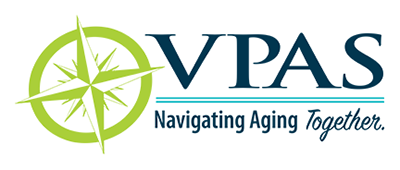
Maybe it’s the way we identify ourselves that tricks us into thinking we’re alone in the journey. We are Robert’s wife, Corrine’s son, Alice’s best friend or Jim’s daughter. When the person we love becomes ill or frail, the relationship simply evolves. We give baths and rides to the doctor. We start paying the bills. That bond is both singular and sacred.
But challenges can mount over time, negatively affecting our health, careers, finances, and parenting. According to the Centers for Disease Control and Prevention, caregivers are more likely to experience depression and anxiety, worse self-reported physical health, and increased early death. Over half of caregivers report that health declines are affecting our ability to provide care to the ones we love.
Perhaps one of the most important ways we can bring a sense of security to our loved ones is to ensure that we are taking care of ourselves. The first step may be recognizing we’re not alone. Connecting with others who face similar joys and trials can not only empower our journey as caregivers, but lead to new levels of fulfillment in the relationships we value most. Click here for a list of VPAS' Caregiver Support programs.
It is also important to recognize that taking care of yourself as a caregiver may include a break and time away from your loved one. VPAS has some Respite Care options that may help:
- Intergenerational Respite Care Program
Through the Intergenerational Respite Care Program (IRCP), VPAS matches pairs of local college students with families caring for an adult age 60 or older in Harrisonburg, Rockingham, Augusta County, and Staunton. IRCP takes place at Bridgewater College and at James Madison University where it is known as the Caregivers Community Network (CCN). Enrolled students provide weekly visits to offer social interaction and cognitive stimulation with the care recipient while the caregiver takes a much needed break. Students in these programs complete training and coursework on best practices that encourage positive rapport with older adults, particularly those who are homebound and who live with cognitive impairments. Here is a YouTube clip that helps explain the program. If you wish to apply please fill out the family application and sent to to Caregiver Outreach Coordinator Kathy Guisewite via e-mail or mail it to VPAS, 975 South High Street, Harrisonburg, VA 22801
- Respite Vouchers
Respite Vouchers of $595.00 are available once a year for family caregivers who live with the care recipient, are in need of a break to have some time to care for themselves, and qualify after completing the required paperwork. For more information, contact us by email joyce@vpas.info or call 540.615.5341.
- The Gathering Place
At The Gathering Place, older adults living with dementia enjoy meaningful activities, purpose and companionship in a supportive setting, while caregivers take a well-deserved break. Our goal is to help families maintain their loved one’s independence at home and delay the need for long-term care whenever possible.
We invite potential members and their family caregivers to attend one complimentary day before completing the New Member Application Form. The Gathering Place meets Wednesdays from 10:00 a.m. to 2:00 p.m. at 325 Pine Avenue, Waynesboro, VA 22980.
Please review participation guidelines. If you believe The Gathering Place is right for you and your loved one, please contact us via email at thegatheringplace@vpas.info or by calling 540.383.7006.
- Resources to Locate Private Caregivers
All VPAS locations maintain a list of private caregivers that can be shared with families in need of respite care. This information is shared with VPAS by persons interested in doing this sort of work, independent of a home health care agency. Services they provide might include assistance with bathing, ambulation, shopping, light housekeeping and more. VPAS does NOT conduct any background or reference checks, but rather just supplies contact information so that families can reach out and make their own choices. Contact your local VPAS office to inquire.
- Opening Minds Through Art (OMA)
Opening Minds through Art (OMA) is a national arts program developed for those living with dementia and other health concerns. Persons with such health concerns, 'the artists', are partnered with volunteers who guide them through the process of creating abstract art. VPAS offers these workshops not only for the artists, but often in tandem with a caregiver support group session. OMA welcomes all skill levels. All materials are provided. For more information about Opening Minds Through Art, please contact Caregiver Outreach Coordinator Kathy Guisewite 540.471.5633.
Here is a YouTube video that explains the program as well as a web site for more information.
There are many local and nationally recognized resources available. Here's a link to a short list of some of those resources. Still have lots of questions? Here are some FAQ's from caregivers.
For more information, contact VPAS' Caregiver Support Coordinator Heather Lawrence at 540.383.7006 or heather@vpas.info
Voluntary and confidential contributions are always accepted and appreciated.
